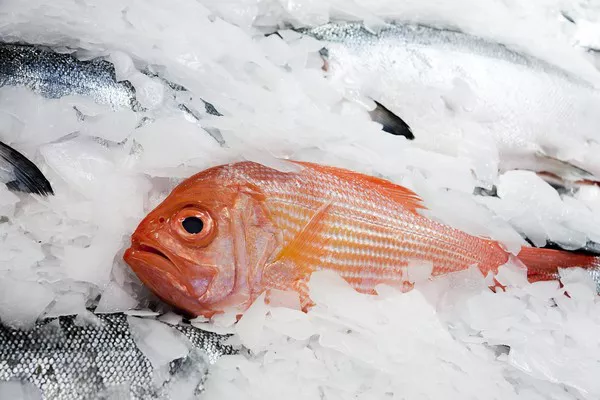Nestlé has responded to the increasing demand for plant-based seafood with the introduction of three new vegan white fish products in Europe and Asia. The multinational company is set to unveil marine-style crispy fillets and nuggets under its Garden Gourmet brand in Europe, crafted from wheat and pea protein. These products will be available both online and in stores across several European countries, including Germany, Spain, Italy, Austria, Poland, the Czech Republic, and Slovakia. Concurrently, Nestlé has already launched crispy fish-free fingers, made from soy and wheat, in Malaysia and Singapore under its Harvest Gourmet brand.
Torsten Pohl, the Global Food R&D Head at Nestlé, emphasized that these new fish alternatives showcase the company’s expertise in plant-based proteins and its commitment to delivering innovative products aligned with consumer expectations. Pohl highlighted the positive feedback received during consumer testing, emphasizing the products’ excellent taste and texture closely resembling white fish.
Nestlé aims to address consumers’ nutritional concerns, particularly in the post-pandemic era marked by an increased focus on health. The company underscores the nutritional credentials of its new products, emphasizing their high protein content, low saturated fat levels, and richness in fiber.
The nutritional aspects are further highlighted by the A Nutri-score rating assigned to the European products, a labeling system used in countries such as France, Germany, and Spain. The Nutri-score labels are known to impact consumer choices positively, as demonstrated by a study revealing the influence of these labels on adolescent food purchases.
Consumer focus on health has become a significant driver in food choices, with surveys indicating a notable reduction in meat consumption due to health concerns. Nestlé’s strategic emphasis on the health attributes of its plant-based seafood aligns with broader industry trends, where health considerations are increasingly central to product launches and marketing campaigns.
The launch of vegan seafood by Nestlé, a major player in the food industry, is indicative of the anticipated growth in the plant-based seafood category. The sector has experienced significant developments, with promising sales growth despite challenges faced by the overall plant-based meat market. Notably, while plant-based meat unit sales saw an 8% decrease, vegan seafood witnessed a remarkable 40% year-on-year growth in pound sales.
Several startups, including Konscious Foods and Hooked Foods, have secured funding for plant-based seafood ventures. Additionally, European brands have received substantial grants for innovative projects, such as creating 3D-printed mycoprotein to replace seafood. The acquisition of vegan seafood brand Good Catch by Wicked Kitchen further demonstrates the industry’s momentum.
The introduction of new plant-based seafood products, including Nestlé’s Garden Gourmet and Harvest Gourmet expansions, reflects the growing consumer demand for sustainable and alternative protein sources. As concerns over overfishing’s environmental impact and the contribution to greenhouse gas emissions continue, plant-based seafood emerges as a viable and ethical solution, aligning with consumer preferences for both health and sustainability. The plant-based seafood category is poised for further growth, offering consumers tasty, nutritious alternatives while contributing to the protection of ocean biodiversity and reducing the ecological footprint associated with traditional fishing practices.

